[By: Martin Grunburg] @thehabitfactor
As The Habit Factor® book was prepped for publication around 2009-ish, I reached out to a handful of influencers and “thought leaders,” hopeful they might read an excerpt and provide a testimonial.
One such thought leader (who shall remain anonymous) replied, “I do not believe in habits. I only believe in mindfulness.”
“Interesting,” I thought. “I just spent approximately five years writing about the force of HABIT, and this guy doesn’t believe in it.”
That’s almost like saying, “I don’t believe in the moon.”
“Mindfulness” —it’s THE BUZZWORD that won’t go away!
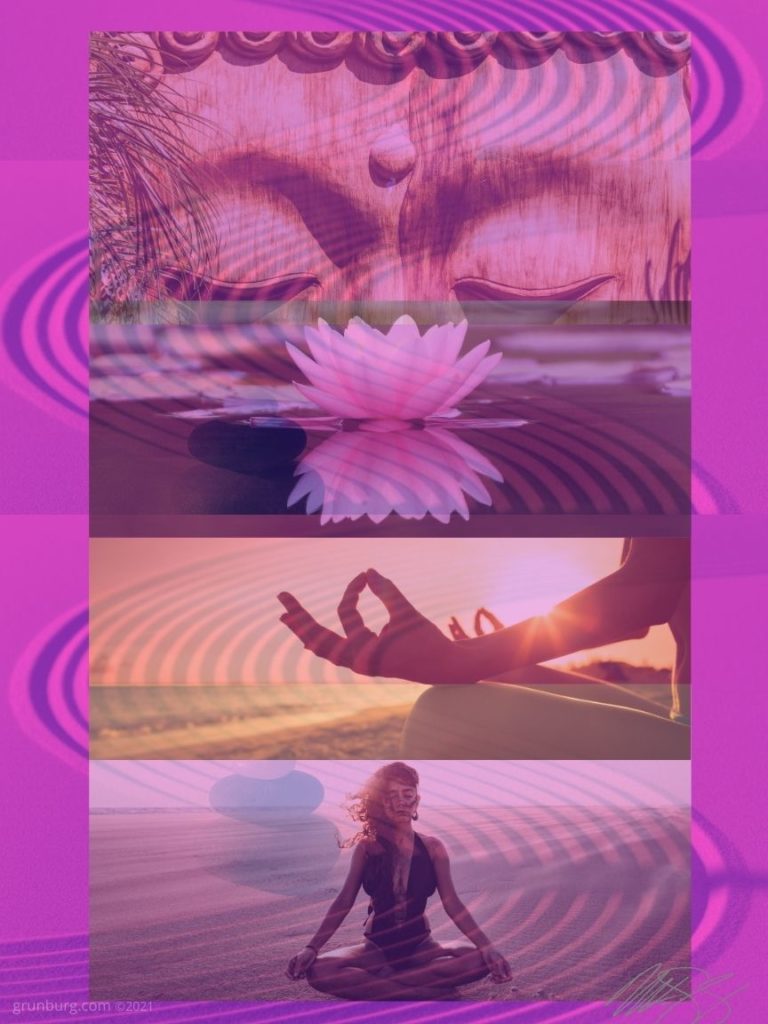
“Mindfulness” IS very trendy these days, almost as trendy as #HABIT ; ) (see chart below).
It appears many people—dare I say, MOST—seem to misunderstand the importance and use of mindfulness.

A 100% is peak score and interest according to Google. (above)
Just like the guru who said he “doesn’t believe in habits,” far too many people think they ALWAYS need to be mindful, as in, 7/24/365!
While that is a noble and perhaps fabulous idea (in theory), it’s horrible and impossible in reality and practice.
What Lao Tzu Didn’t Say
“If you are depressed, you’re living in the past. If you’re anxious, you’re living in the future. If you are at peace, you’re living in the present.” ~Lao Tzu (attributed)
Sounds pretty good, doesn’t it?
Unfortunately, that isn’t from our buddy Lao Tzu.
We can take solace knowing that LT and other great philosophers weren’t likely pondering depression or anxiety 2,400 years ago.
However, I'll tell you what adds to one's depression and anxiety…thinking you need to be mindful all the time! Ha! Share on XHave you ever felt like you’re letting your kids, spouse, friends, and even yourself down because you can’t stay in the blissful, present moment all the time?
If this sounds familiar, rest easy, my friend. You’re holding yourself to an impossible standard—one that was NEVER meant to exist. Not even by Lao Tzu himself.
Here’s a semi-shortlist of reasons and benefits —permission—to LEAVE the blissful present and NOT engage in mindfulness.
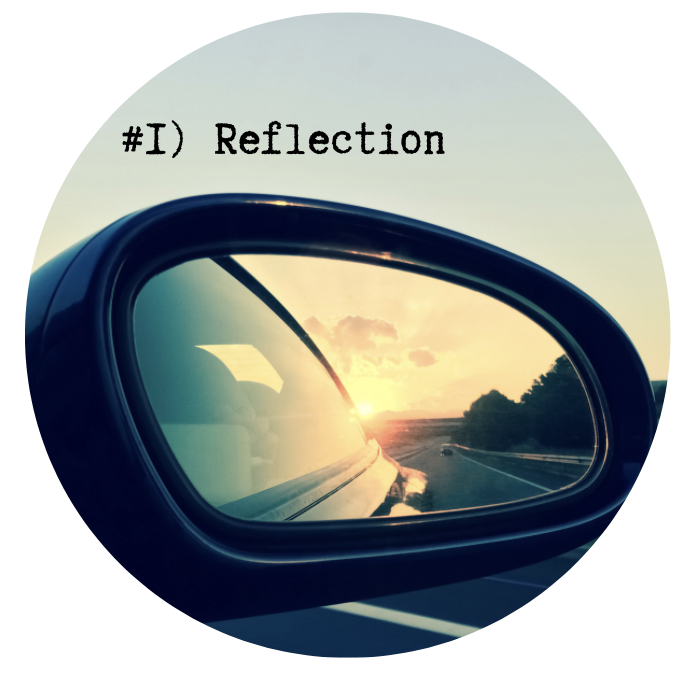
#1. Reflection is a pathway to wisdom.
It’s tough to be all-present while you’re reflecting. But don’t just take it from me—take it from our good buddy Aristotle, who said, “Wisdom is equal measure experience plus reflection.” As humans, we have the unique (and powerful) capacity to reflect, and we MUST use it.
Now, I’m not necessarily sure we can devote “equal measure,” but you’re encouraged to try!
Arguably, the source of ALL improvement is REFLECTION.
How does any person, company, or even product become better? Reflection! Specifically, by asking questions about what works and what doesn’t!
It’s important to remind ourselves that our past retains nuggets of gold, precious gems that can be fairly easy to dig up with just a bit of reflection, couched with quality questions.
Chances are good we should be reflecting more, not less.
Important: This is not a recommendation to dwell in the past and wallow in sadness or depression. Rather, inspect your past and find the many lessons it holds, then keep moving!
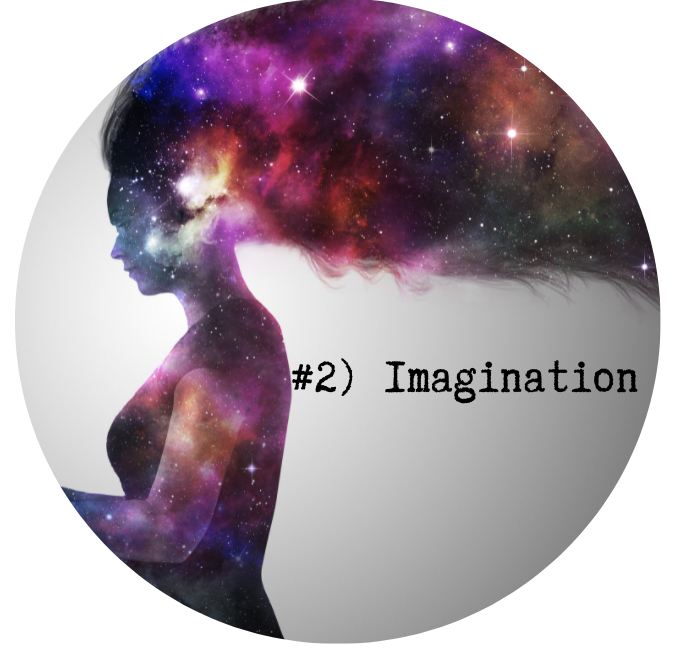
#2. Creativity demands imagination, visualization, and intention, NOT mindfulness.
"Visualization is the master skill of intent." Share on XSpending time peering into the future requires that you leave the “mindfulness” present!
Take a moment to consider some of the greats—our heroes—the people we admire.
What do they do on a regular basis?
Consider Jobs, Edison, Disney, Lincoln, Curie, Musk, or MLK —the list is long.
What did they ALL do?
For starters, they had the habit of spending time, in some cases enormous amounts of time, camped out in their imagination. They peered into a future of possibilities; dreaming, wondering, and visualizing what might be!. Share on X“The best way to predict the future is to create it!“
(Not an Abraham Lincoln quote)
To create any future, we must first peak into it—daydream, camp out, and envision the possibilities. This can happen only outside of mindfulness!
It’s not a stretch to say that each of the aforementioned greats pondered (visualized) a more ideal future, which fueled their present-day ambitions.
Consider Dr. King’s famous “I Have a Dream” speech. No one is going to argue that he wasn’t present and very mindful of the challenging conditions of the moment, yet he eagerly and optimistically looked toward a brighter future—a vision of what could be!
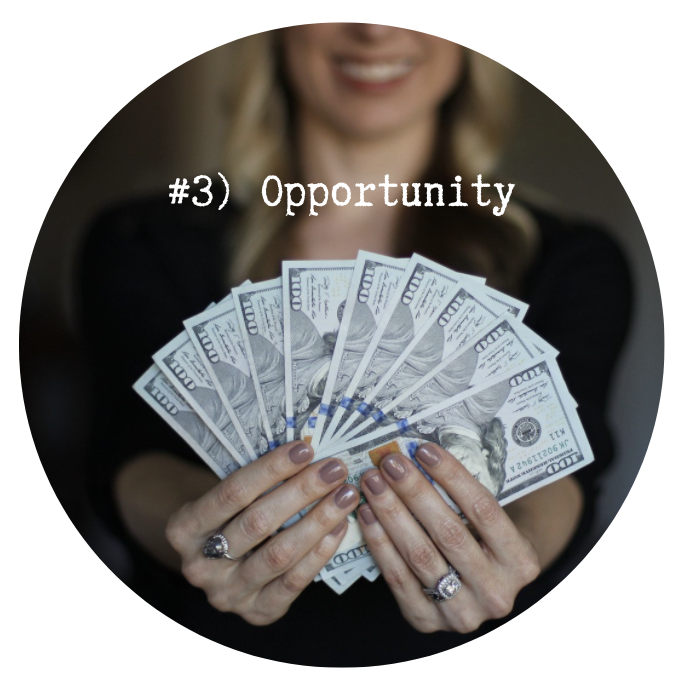
#3. The FUTURE is where opportunity and (not coincidentally) perhaps a good investment might be found.
Spend too much time in the now—total mindfulness—and you just might miss out on the next tech stock darling or wealth opportunity.
Tesla’s recent stock catapult isn’t as much tied to present-day company value or performance as it is correlated to the company’s future potential. The same can be said for most other stocks and, frankly, the stock market in general.
The investing world is all about forecasting, not so much about rewarding mindfulness. Share on XNew, exciting ventures reside at the intersection of trends, tailwinds, and ambition.
For better or worse, Jeff Bezos (video below) saw a future where Amazon not only sold books but ultimately, everything customers might desire and shop for.
He used foresight, reflection, and imagination, as well as an understanding of technology trends, so that Amazon’s strategy could capitalize on such trends.
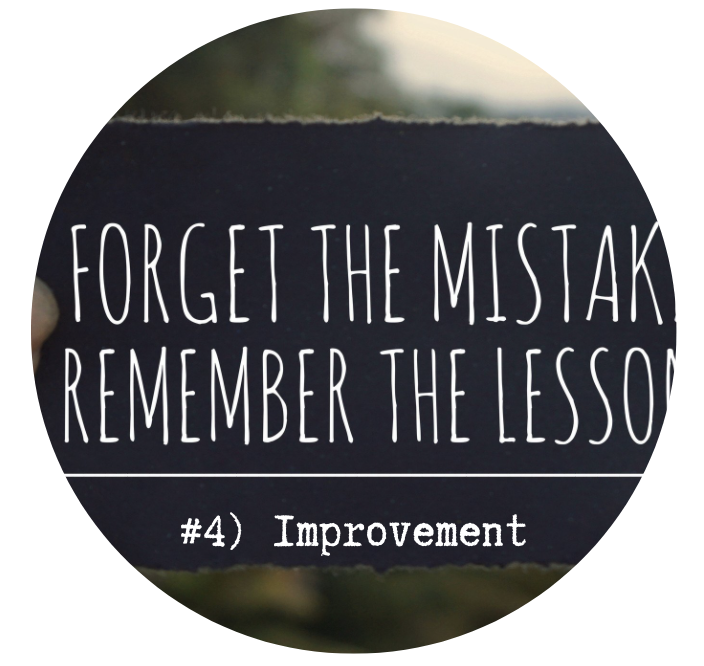
#4. Foresight helps lead people to better careers and build better companies
Once you’ve assessed your passions, affinities, and interests, it’s important to see how they may intersect with various industry trends.
Let’s say you’re a truck driver, and you notice that Tesla, as well as other automakers, are moving toward autonomous trucks. How do your truck-driving skills fit into the matrix and skillset requirement that will be desired in the future?
Such an exercise would have been beneficial for companies like Blockbuster and Kodak.
On the flip side, computer programming, artificial intelligence, blockchain, and wearable technologies are marketplaces that will see spectacular growth over the next decade.
How might YOU capitalize, a la Bezos, on any growing technology trend that utilizes your new skills?
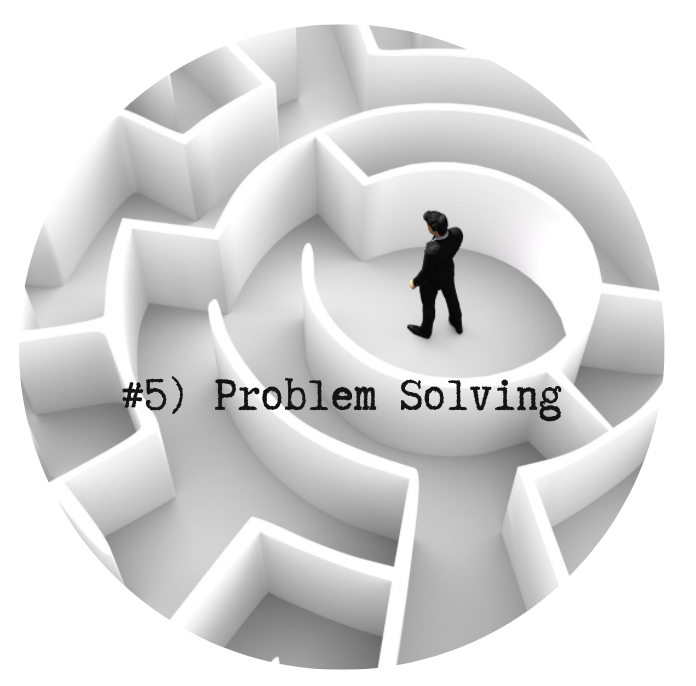
#5. Creativity and problem solving are rarely about mindfulness
As I shared in The Habit Factor®, creative insight tends to arise when you are entirely or almost entirely MINDLESS—not mindful.
Creative insight strikes us most often when we are in "habit-mode," where there is little or no conscious thought. Share on XShowering, jogging, napping, shaving, brushing your teeth, driving, etc.—all of these habit-like behaviors produce a mentally relaxed state, where the mind wanders. Thus, we exit the “blissful now”— we leave mindfulness and simply let go.
BAM! Creativity strikes!
Problem-solving rarely comes about as a forced, conscientious effort.
Creativity and insight are birthed from the Alpha and Theta brainwave spectrum.
>>>>POSTSCRIPT<<<<
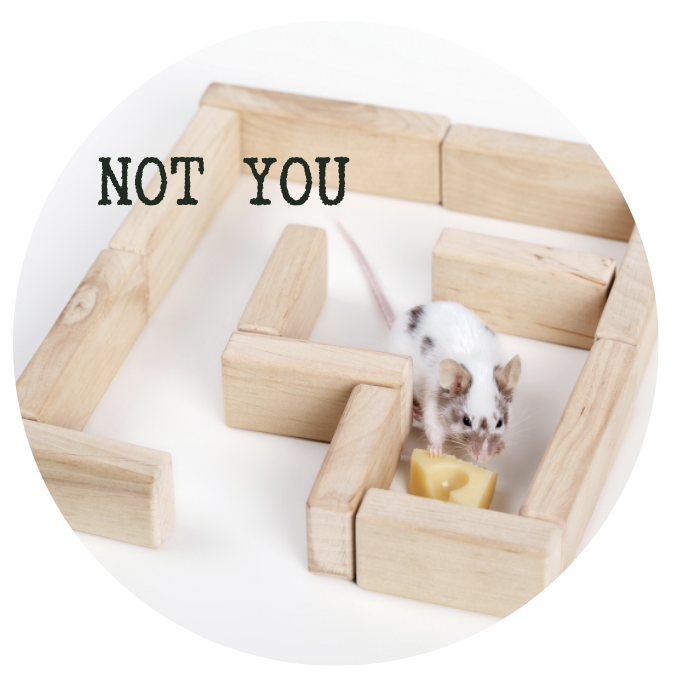
Mindfulness and the RAT
ENTER HABIT and the P.A.R.R. Method for Habit Development
(Plan, Act. Record, & Reassess)
You knew I was going to bring this back to HABIT, didn’t you? ; )
So, when it comes to living a life by design versus by default, YOU possess a couple of innate and powerful human capacities: intention and reflection.
Rats and mice do not.
The widely regurgitated and much-touted “Habit Loop” Cue, Routine, Reward treats you as though you are a RAT.
You, my friend, are no rat!
Only The Habit Factor®, since day one (over a decade ago), was teaching this. Nearly all the other blogs, apps, and bestselling books that would follow advised following the “HABIT LOOP”, Cue, Routine, Reward in order to help you develop habits.
INTENTION and REFLECTION are abilities that are meant to be used for habit development. To utilize both, one must arguably (once again) leave mindfulness.
Intention is about the future; reflection is about the past.
By reflecting, we can and should assess our behaviors and decisions—what is working and what is not working.
The same is true when it comes to developing new habits. Share on XBy using intention and reflection, following PARR, we can more quickly and easily develop the good, positive habits that align with our goals and ideals.
Simply ask, “What is my intention?”
WHERE do I wish to go?
WHO do I wish to become?
What are my strengths, and what are my weaknesses?
What new habits and skills should I develop today that will serve my ideal future?
P.S.S:
To be clear, I’m not saying mindfulness isn’t important. I’ve practiced meditation for more than 20 years and know the power and importance of mindfulness.
Arguably, and perhaps ironically, it’s that very practice that has led me to this important observation: It’s NOT ALL about mindfulness.
In fact, it’s rarely ever ALL about any one thing.
~mg
New to The Habit Factor? Be sure to download your FREE habits and goals tracking sheet! If you’re in the U.S., TEXT the word “HABITS” to the number: 33444
You’ll get the template sent to you immediately with quick and easy-to-follow instructions about how to craft and align good, positive habits in order to achieve your goals more quickly.
Check out the Habits 2 Goals Mastery Program!
2+ Hours of life-changing video content, PLUS 15 powerful personal development exercises.